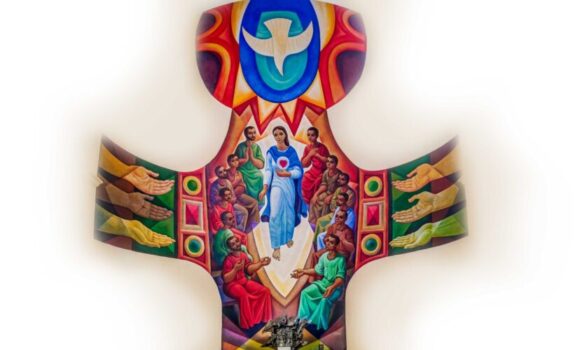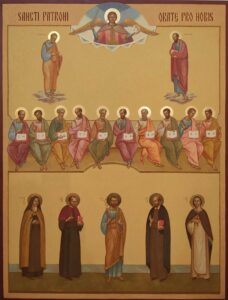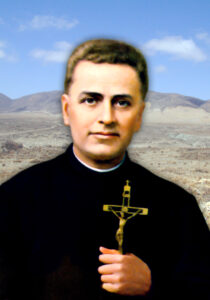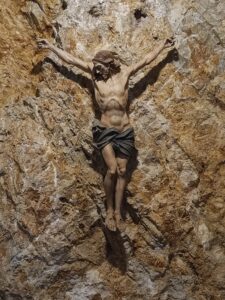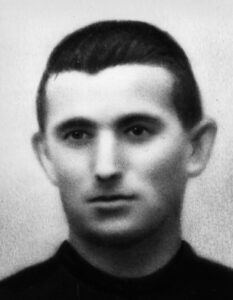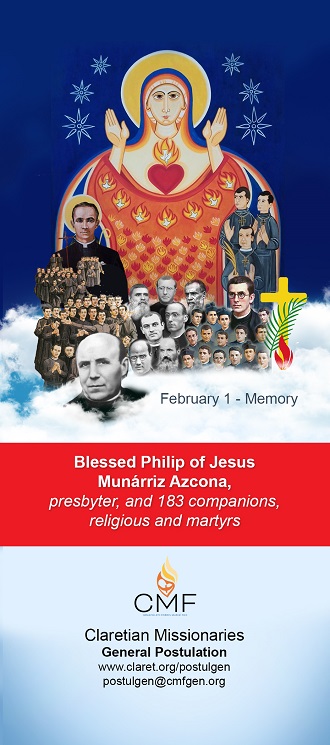Pope Francis, The General Audience, 07.04.2021
When we pray, we never do it alone: even if we do not think about it, we are immersed in a majestic river of invocations that precedes us and continues after us.
In the prayers we find in the Bible, and which are often echoed in the liturgy, there is a trace of ancient stories, of prodigious liberations, of deportations and sad exiles, of emotional returns, of praises that flow before the wonders of creation… And so these voices are handed down from generation to generation, in a continuous interweaving between personal experience and that of the people and humanity to which we belong. No one can detach himself from his own history, from the history of his people, and we always carry this heritage in our habits and also in our prayer. In the prayer of praise, especially in that which blossoms in the hearts of the little ones and the humble, there is an echo of the song of the Magnificat which Mary raised to God before her kinswoman Elizabeth; or of the exclamation of old Simeon who, taking the Child Jesus in his arms, said: “Now you may let your servant go in peace, O Lord, according to your word” (Lk 2:29).
Prayers – the good ones – are “diffusive”, they propagate continuously, with or without messages on “social networks”: from hospital wards, from moments of festive gathering as well as from those in which one suffers in silence… The pain of each person is the pain of all, and the happiness of some is transferred into the soul of others. Pain and happiness are part of the same story: they are stories that make history in one’s own life. You relive the story in your own words, but the experience is the same.
Prayers are always reborn: every time we join hands and open our hearts to God, we find ourselves in a company of anonymous saints and recognised saints who pray with us, and who intercede for us, as elder brothers and sisters who have passed through the same human adventure as us. In the Church there is no mourning that remains solitary, no tear that is shed in oblivion, because everything breathes and shares in a common grace. It is no coincidence that in the ancient churches the burials were in the garden around the sacred building, as if to say that in some way the host of those who have gone before us participates in every Eucharist. There are our parents and grandparents, there are the godparents, there are the catechists and other educators… That faith which has been handed down, transmitted, which we have received: with the faith has also been transmitted the way of praying, prayer.
The saints are still here, not far from us; and their representations in the churches evoke that “cloud of witnesses” that always surrounds us (cf. Heb 12:1). At the beginning we heard the reading from the Letter to the Hebrews. They are witnesses whom we do not worship – of course, we do not worship these saints – but whom we venerate and who in a thousand different ways refer us to Jesus Christ, the one Lord and Mediator between God and man. A saint who does not remind you of Jesus Christ is not a saint, not even a Christian. A saint reminds you of Jesus Christ because he has walked the path of life as a Christian. The saints remind us that even in our lives, though weak and marked by sin, holiness can blossom. In the Gospels we read that the first ‘canonised’ saint was a thief and ‘canonised’ not by a Pope, but by Jesus himself. Holiness is a life journey, an encounter with Jesus, whether long or short, whether in an instant, but always a testimony. A saint is the testimony of a man or woman who has met Jesus and followed Jesus. It is never too late to convert to the Lord, who is good and great in love (cf. Ps 102:8).
The Catechism explains that the saints “contemplate God, praise him and do not cease to care for those they have left on earth. […] Their intercession is the highest service they render to God’s plan. We can and must ask them to intercede for us and for the whole world” (CCC, 2683). In Christ there is a mysterious solidarity between those who have passed on to the next life and us pilgrims in this one: our deceased loved ones continue to care for us from heaven. They pray for us and we pray for them, and we pray with them.
This bond of prayer between us and the saints, that is, between us and the people who have come to the fullness of life, this bond of prayer we already experience here, in earthly life: we pray for each other, we ask and offer prayers… The first way to pray for someone is to talk to God about him or her. If we do this frequently, every day, our heart does not close, it remains open to our brothers and sisters. Praying for others is the first way of loving them and leads us to concrete closeness. Even in times of conflict, one way to dissolve the conflict, to soften it, is to pray for the person with whom I am in conflict. And something changes with prayer. The first thing that changes is my heart, my attitude. The Lord changes it to make an encounter possible, a new encounter, and to prevent the conflict from becoming a war without end.
The first way to deal with a time of anguish is to ask the brothers, the saints above all, to pray for us. The name given to us in Baptism is not a label or a decoration! It is usually the name of the Virgin, a saint or a saint, who are waiting to “give us a hand” in life, to give us a hand to obtain from God the graces we need most. If in our lives the trials have not reached their climax, if we are still capable of perseverance, if despite everything we go on with confidence, perhaps we owe all this more to the intercession of so many saints than to our own merits, some in Heaven, others pilgrims like us on earth, who have protected and accompanied us because we all know that here on earth there are holy people, holy men and women who live in holiness. They don’t know it, we don’t know it either, but there are saints, everyday saints, hidden saints or, as I like to say, the “saints next door”, those who live with us in life, who work with us, and lead a life of holiness.
Blessed therefore be Jesus Christ, the only Saviour of the world, together with this immense flowering of saints who populate the earth and who have made their lives a praise to God. For, as St Basil stated, “for the Spirit the saint is a particularly suitable dwelling place, since he offers himself to dwell with God and is called his temple” (Liber de Spiritu Sancto, 26, 62: PG 32, 184A; cf. CCC, 2684).
